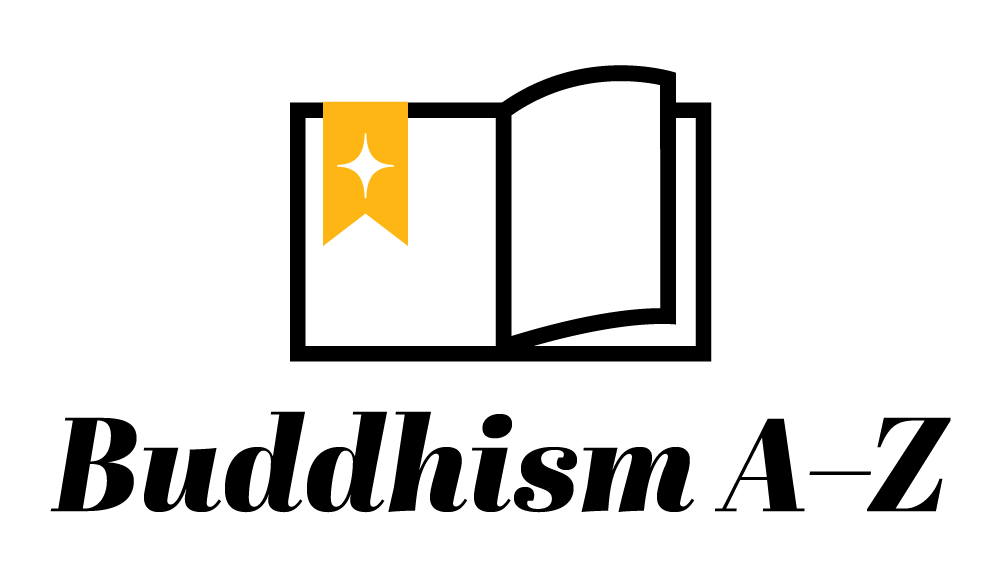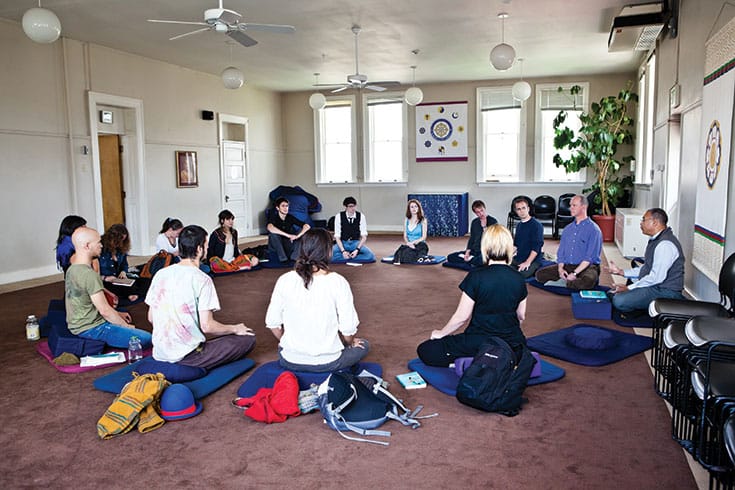The Eightfold Path is the last of the Four Noble Truths, the Buddha’s fundamental teaching. Having established the truths of suffering, the cause of suffering, and freedom from suffering, the Buddha teaches us the Eightfold Path that we can follow to liberate ourselves from suffering and achieve enlightenment.
The Eightfold Path is not a linear path we take step by step. It is a holistic and interconnected set of practices to be engaged in simultaneously, as progress in one area can support progress in others. The Eightfold Path is a comprehensive and lifelong journey.
The eight elements of the path—which are described as “right,” “wise,” or “skillful”—are typically divided into three categories: wisdom, ethical conduct, and mental discipline. These are collectively known as the Threefold Training. These trainings are seen as essential for attaining liberation from the cycle of suffering (samsara).
Wisdom
1. Right View
Right view includes a correct understanding of the Four Noble Truths, the law of karma (the principle that our actions have consequences), and the impermanence and interconnectedness of all phenomena. It involves recognizing the nature of suffering, its causes, and the path to its cessation.
2. Right Resolve
Right resolve means cultivating wholesome and ethical intentions. This includes our intentions to renounce harmful actions, to develop goodwill and compassion toward all beings, and to cultivate non-attachment or non-harming.
3. Right Speech
False speech, divisive speech, harsh speech, and idle chatter are all considered unskillful and harmful and should be avoided. Instead, we should use our words to promote truth, harmony, and understanding.
Ethical Conduct
4. Right Action
Skillful action emphasizes ethical conduct and the importance of leading a life that is aligned with moral principles. This means refraining from harmful actions, including killing, stealing, sexual misconduct, and so on.
5. Right Livelihood
To engage in right livelihood means choosing work that is in harmony with the principles of ethical conduct and does not harm others. For example, this would include avoiding professions that involve harming sentient beings or engaging in dishonesty.
6. Right Effort
Right effort means making a persistent and diligent effort to cultivate wholesome qualities and eliminate unwholesome ones, abandon negative mental states, and nurture positive ones.
Mental Discipline
7. Right Mindfulness
Right mindfulness is the practice of being fully aware and present in the moment: observing our body, feelings, mind, and mental phenomena with clear and non-judgmental awareness.
8. Right Concentration
Right concentration is the development of a one-pointed, focused mind. This is achieved through meditation practices that allow the mind to become absorbed in a single object of concentration, leading to states of mental tranquility and insight.
Related Reading
The Eightfold Path: Right Thought
We can’t control our thoughts, says Reverend Marvin Harada. But we can reflect on them—and doing that changes everything.
The Eightfold Path: Right Mindfulness
Norman Fischer on why mindfulness is not always “right.”
The Eightfold Path of Joy and Liberation
The Buddha’s four noble truths include the truth that the eightfold path is a way out of suffering. It’s not just the path to happiness, says Sister True Dedication. It’s happiness itself.
The Eightfold Path: Right View
Koun Franz on seeing what’s in front of you, even the things you’d rather not see.
The Eightfold Path: Right Action
Actions can be helpful in one situation yet harmful in another. Rebecca Li says awareness is needed to identify right action.
The Eightfold Path: Right Speech
Do you have something you want to say? Nikki Mirghafori on the questions to ask yourself.
The Eightfold Path: Right Livelihood
Work can be a path to changing the world, personal growth, and even spiritual discovery. Tami Simon explains.
The Eightfold Path: Right Effort
It’s not about striving for success, says Lama Karma Yeshe Chödrön. Right effort is a graceful fine-tuning.
The Eightfold Path: Right Concentration
When you’re in harmony with all the factors on the eightfold path, that is right concentration. A teaching by Bradley Donaldson.
Mindfulness and the Buddha’s Eightfold Path
To understand how to practice mindfulness in daily life, says Gaylon Ferguson, we have to look at all eight steps of the Buddha's noble eightfold path.
Buddhism A–Z
Explore essential Buddhist terms, concepts, and traditions.











